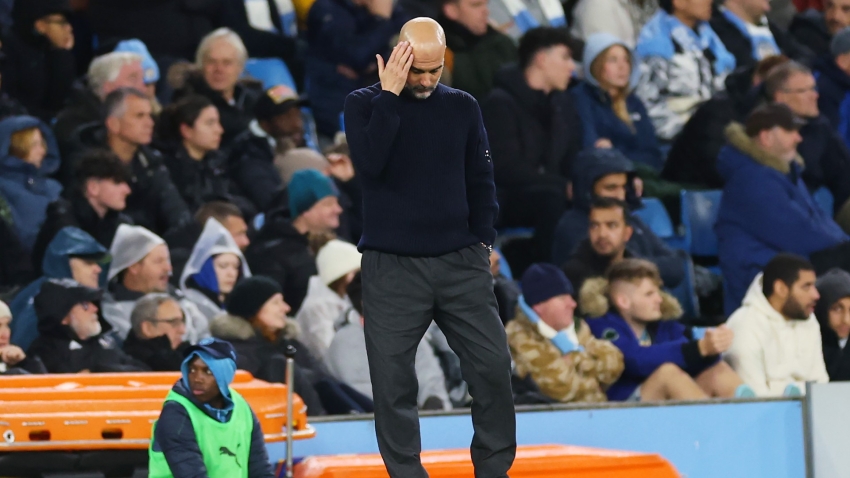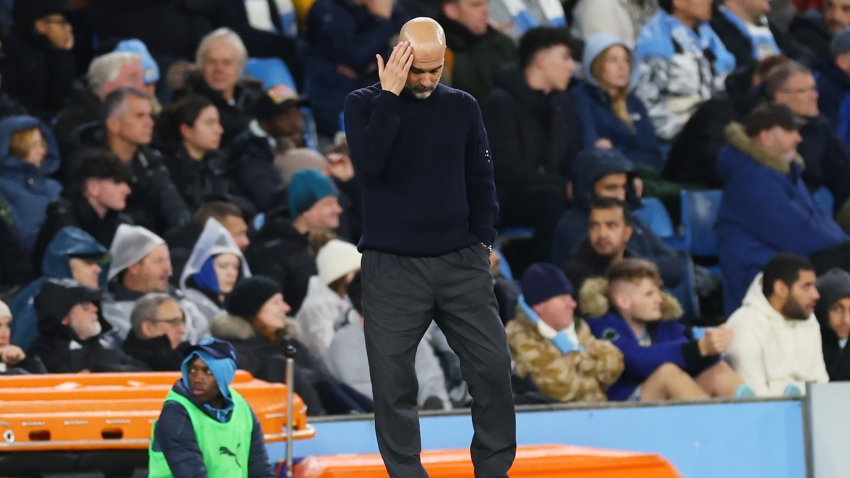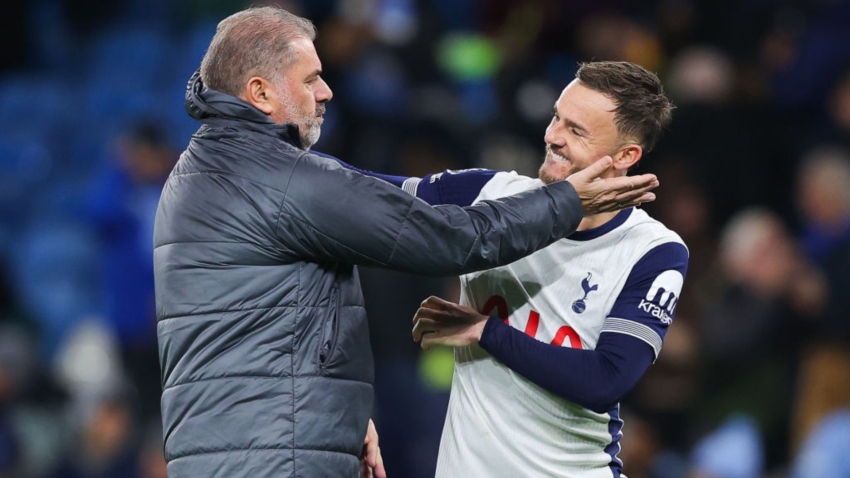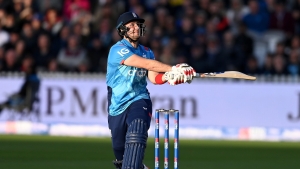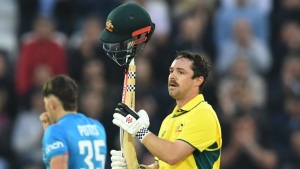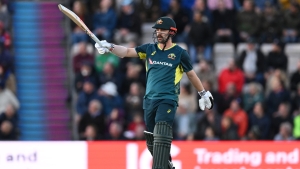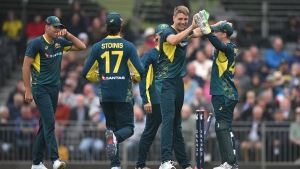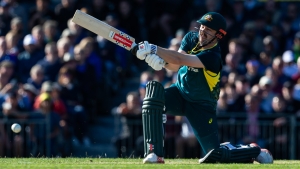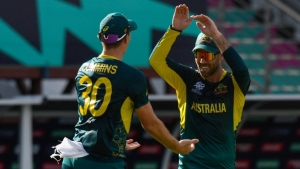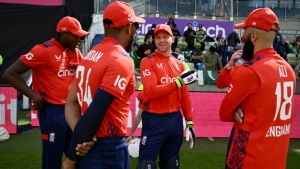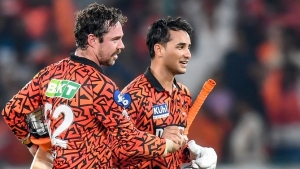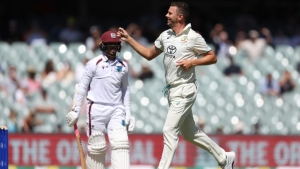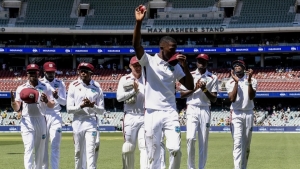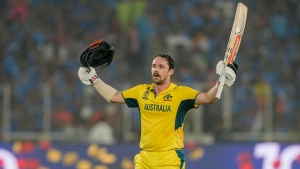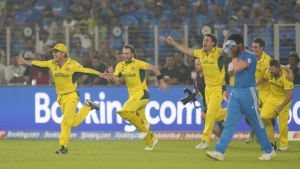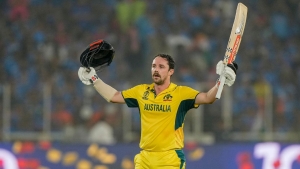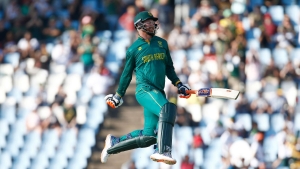It's fair to say England's last defence of a limited-overs world title did not go to plan.
Eighteen months on from losing their 50-over crown in India, failing to get out of their group as they lost six of nine matches, Jos Buttler's team will hope for far better at the 2024 T20 World Cup.
The champions will face stern competition in the largest-ever edition of the tournament, with 20 teams descending on the West Indies and United States, who get things under way against Canada in Dallas on Saturday.
How will the hosts fare in a tournament many hope will have a lasting impact on stateside cricket? Can India end their 17-year drought in the 20-over format, or will Australia follow in England's footsteps by winning both limited-overs crowns?
Ahead of the opening match, we run through the big storylines and delve into the best Opta stats surrounding the key contenders and players.
The hosts
Many eyebrows were raised when the United States were confirmed as co-hosts for this year's tournament, but a recent 2-1 series win over Bangladesh showed they are not simply there to make up the numbers.
Sixteen of the tournament's 55 matches will be played in the US, with those split between Dallas, Miami and Long Island, New York.
This will be just the second edition of the T20 World Cup to be held in more than one country, after Oman and the United Arab Emirates co-hosted in 2021. No host nation has ever lifted the trophy, and only two hosts have even reached the semi-finals – Sri Lanka in 2012 and India in 2016.
The USA are one of three teams making their T20 World Cup bow, alongside Canada and Uganda. Their hopes of making an impression on home turf may rest upon Monank Patel, whose 441 T20I runs put him second in their all-time charts behind Steven Taylor (742).
While the USA's ambitions may be limited to giving a good account of themselves against India, Pakistan and Ireland in Group A, their co-hosts will be hoping for more.
Champions in 2012 and 2016, West Indies are one of just two teams (alongside England) to win multiple T20 World Cups, while they will also become just the second nation to host on two occasions, having previously done so in 2010.
They have been drawn alongside Afghanistan, New Zealand, Papua New Guinea and Uganda in Group C, and with every match from the Super-8 stage onwards being held in the Caribbean, they will enjoy home advantage all the way.
The last time the Windies served as hosts, no team managed a score of 200 or more runs throughout the entire tournament. That has only occurred at one other T20 World Cup (in 2014), and it looks unlikely to happen again this year, given the likelihood of a few group-stage mismatches.
The champions
No team has ever successfully defended the T20 World Cup trophy, a feat England will attempt to achieve at the site of their first triumph in the format – they beat Australia in the 2010 showpiece at the Kensington Oval.
They face Scotland, Namibia and Oman in Group B, with old rivals Australia also awaiting in a clash likely to determine top spot.
Captain Buttler and head coach Matthew Mott are under pressure to mastermind a far better title defence than their pitiful effort in the 50-over tournament, and they will adopt a big-hitting approach with Phil Salt, Will Jacks, Jonny Bairstow, Harry Brook and Liam Livingstone joining Buttler in the competition's most fearsome top six.
The question marks are with the ball and much could hinge on the fitness of Jofra Archer, after wet weather limited his opportunities to play his way into form in a home series against Pakistan.
Leg-spinner Adil Rashid has more T20I wickets in the West Indies (21) than any other overseas bowler, and he will have been pleased to see England's four group-stage games pencilled in for the Caribbean.
Sam Curran, meanwhile, was the player of the tournament in 2022 and could make another big impact after enjoying his best IPL campaign to date with Punjab Kings.
The challengers
India
Like England, India are also looking to banish the ghosts of last year's ODI competition, when they suffered final heartache on home soil.
Skipper Rohit Sharma gets another chance at ending their 17-year T20 World Cup drought, with seven other survivors from the 50-over final loss included in his squad.
Rohit, like Bangladesh’s Shakib Al Hasan, has participated in all eight previous editions of this tournament, and only Virat Kohli (1,141) has bettered his 963 T20 World Cup runs among active players.
Kohli approaches the tournament in fine shape, having clinched the Orange Cap by top-scoring with 741 runs for Royal Challengers Bangaluru in the 2024 IPL.
The main questions surrounding the batting great, as is the case for India's squad at large, relate to the physical toll taken by a jam-packed IPL schedule.
India's second fixture, which pits them against Pakistan in New York on June 9, is the headline contest of the group stage and will tell us much about their hopes.
Australia
Australia head to the Americas with 11 players who tasted success in 50 overs last year, though Steve Smith and Jake Fraser-McGurk – who enjoyed a terrific IPL campaign with Delhi Capitals – were the two big-name omissions from Mitch Marsh's squad.
This World Cup will be a last dance for David Warner, who has already announced his intention to retire from T20Is – his last international format – after the tournament.
Warner – who was crowned player of the tournament when Australia triumphed in 2021 – has racked up a total of 806 runs at the T20 World Cup, and will hope to surpass 1,000 with a big showing in 2024.
The big-game experience of Warner, Mitchell Starc, Pat Cummins et al. will be the envy of most other teams at the tournament.
Australia will not be fazed by being put under pressure, either, boasting a 72 per cent win rate when chasing in T20 World Cup matches – the highest of any team in tournament history (25 games – 18 wins, seven losses).
New Zealand
Having reached the semi-finals at the last three editions of the T20 World Cup – losing the 2021 final to Australia – New Zealand appear more likely to challenge the world's top three than an unfamiliar South Africa side, or a Pakistan team plagued by off-pitch issues.
Like Australia, the Black Caps boast an incredible amount of experience, with only four members of Kane Williamson's squad being below the age of 30.
Mark Chapman, 29, is one of them, and he could be their player to watch after smashing 575 runs in T20Is in 2023. For all member nations, only India's Suryakumar Yadav managed more (733).
Their group-stage match against the Windies – set for June 12 in Trinidad and Tobago – is one to circle on the calendar.
The key players
Andre Russell
Russell has built a reputation as one of the world's most fearsome bowlers and comes into his home tournament off the back of a brilliant IPL campaign with championship-winning Kolkata Knight Riders.
He finished the 2024 IPL with 19 wickets (including three in the final against Sunrisers Hyderabad), a tally only bettered by Harshal Patel (24), Jasprit Bumrah and Avesh Khan (20 each) among pacemen.
Russell also did some damage with the bat, scoring 223 runs at a strike rate of 184.3.
Travis Head
Australia superstar Head enters the World Cup in the form of his life, with his 567 runs for Sunrisers Hyderabad making him the fourth-highest run scorer in the 2024 IPL and the highest non-Indian (only Kohli, Ruturaj Gaikwad and Riyan Parag managed more).
His batting strike rate of 191.6 was only bettered by Abhishek Sharma (204.2) and Fraser-McGurk (234). With the latter failing to make Australia's squad, Head will carry the burden with the bat.
Jasprit Bumrah
India's squad is packed full of household names, but Bumrah remains the player opposition teams envy most of all. The world's number one paceman has 74 wickets in 61 T20I overs in his career, second only to Yuzvendra Chaha (96) in the India squad.
Virat Kohli
Another of India's icons, Kohli has a batting average of 81.5 from 25 previous innings at the T20 World Cup, the best of any player in the history of the tournament to have at least 10 innings under their belts.
He has scored 50 or more runs in four of his last six innings in the tournament (82*, 62*, 12, 64*, 26 and 50). Ireland – India's first opponents on June 5 – had better beware.
Jos Buttler
While England have plenty of players capable of taking the lead with the bat, skipper Buttler is often the man they turn to in this format.
Since the start of the 2021 tournament, he has scored 29.7 per cent of England's runs in T20 World Cup action, the best rate of any player with at least four innings during that span.









